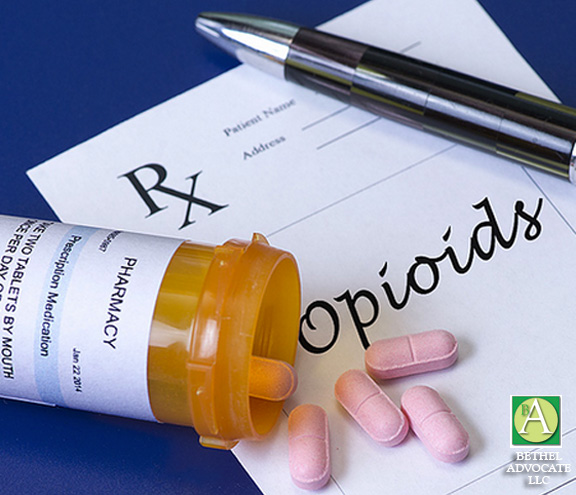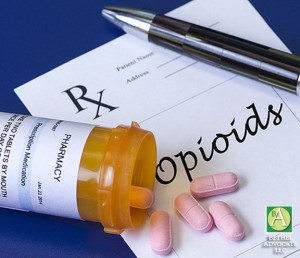
Report by Paula Antolini
December 28, 2016 4:50PM EDT
Gov. Malloy, Lt. Gov. Wyman, and Attorney General Jepsen Announce At-Home Drug Disposal Kits Now Available at Pharmacies Across Connecticut
Kits Donated to the State as Part of Efforts to Combat Ongoing Crisis of Prescription Opioid Misuse
(HARTFORD, CT) – Governor Dannel P. Malloy, Lt. Governor Nancy Wyman, and Attorney General George Jepsen today announced that – as part of the state’s ongoing efforts to combat the misuse of opioids – 80,000 drug deactivation kits capable of safely disposing unused prescription medications have been donated to the State of Connecticut and are now available free-of-charge to residents at over 600 pharmacies throughout the state. The biodegradable Deterra drug disposal kits were donated by Mallinckrodt Pharmaceuticals and can deactivate and destroy up to 45 pills each simply by adding warm tap water and then disposing the kit in the trash.
With excess prescription opioids known to contribute to misuse, abuse, and addiction, these kits will allow Connecticut residents to safely dispose of these drugs at home without contaminating water sources or harming the environment. In order to get the kits into the hands of consumers, state agencies have partnered with pharmacies throughout the state to help distribute the packets. Individuals seeking a drug disposal kit can visit their local pharmacy and obtain one free of charge. Participating pharmacies include Big Y, CVS, Price Chopper, Rite Aid, Shop Rite, Stop and Shop, Walgreens, Walmart, and other independent outlets.
“Opioid misuse from prescription drugs can effect anyone of any age or background – nobody is immune. We’ve unfortunately heard many stories from residents whose addiction began when they were prescribed a few pills to help with a certain medical condition, and then led them down a path of addiction and overdose,” Governor Malloy said. “Addiction is a disease. By educating residents on the potential danger of these medications and how to safely dispose of any pills that may no longer be needed for their intended purpose, we can help prevent potential harm or even tragedy from occurring. I urge any Connecticut resident looking to dispose of unused medication to visit their local pharmacy and ask for one of these packets.”
“Properly disposing of leftover prescription drugs is one way to help stem the overdose epidemic and save lives,” Lt. Governor Wyman said. “Innovations like these pouches address the a very real threat of unused meds being abused, and give consumers an easy opportunity to do the right thing in a way that is healthier for the environment.”
“The opioid epidemic is a complex problem that requires a multifaceted solution,” Attorney General Jepsen said. “No one, single measure or initiative is going to solve the problems with opioid abuse, addiction and overdose that we face as a state and a community, but every step that we take will help to address an aspect of the epidemic and, hopefully, save lives. I believe access to these disposal kits will help to reduce the amount of unused prescription medication in home medicine cabinets and help to reduce the potential that these drugs – especially opioids – will be diverted and potentially lead to greater addiction problems in the future. I would urge Connecticut residents to take advantage of this free and convenient opportunity to dispose of unused medications and to join us in addressing this continuing problem.”
Each of the at-home, Deterra drug disposal kits contains a water-soluble inner pod containing MAT12® activated carbon (charcoal). When medication is placed inside of the pouch, warm water should be added, which will dissolve the inner pod releasing the activated carbon. The resulting solution will then dissolve any prescription pills, patches and liquids that were placed inside of the kit, allowing them to be adsorbed by the carbon, and rendering them inert and irretrievable.
“As a company focused on the health and well-being of our patients and communities, Mallinckrodt has long been a strong advocate of addressing the complex issues of opioid misuse and abuse that cause so much harm to families,” Mark Trudeau, Mallinckrodt President and CEO, said. “Providing patients with a safe, environmentally responsible way to dispose of unused medications is critical in this fight against prescription drug abuse. Mallinckrodt is committed to working with policy makers, community leaders, law enforcement and industry partners to ensure the responsible use of pain medication and to prevent unused medications from being misused or abused.”
Any pharmacy in the state that has not received kits or would like to request additional ones should contact the Connecticut Department of Consumer Protection’s (DCP) Drug Control Division at [email protected] or 860-713-6065.
In addition to the at-home kits, DCP operates a drug disposal program that provides over 71 unused medication disposal drop boxes for Connecticut residents, which can be found at many local and state police departments across the state. A full listing of these drop boxes, as well as instructions for alternate means individuals can safely dispose of unused medication, can be found on DCP’s website.
“Our agency is pleased to see this safe drug disposal pouch program launch and that it’s been made available to all pharmacies in the state,” DCP Commissioner Jonathan A. Harris said. “We’re excited to add this to the efforts we’re already collaborated on, such as drug drop boxes and education about safe medication disposal. I know the fight against the opioid crisis is personal to so many of us. As a state, we need to continue taking every opportunity we have to keep unsafe drugs out of the hands of people they can hurt, and those who suffer from addiction.”
“Prescription medications can contain heavy metals, toxins, acids/bases, high alcohol content, and other materials that when used properly in small dosages are safe,” Connecticut Department of Energy and Environmental Protection Commissioner Robert Klee explained. “When misused or disposed of in bulk, these prescription medications can create significant hazards to the environment, the quality of our waters, and public health – that is why it is so important that we are all here working together on this important issue.”
Since taking office, Governor Malloy has enacted several policy changes to combat the opioid epidemic. These include:
- the 2011 adoption of Good Samaritan laws protecting individuals from prosecution for minor drug crimes who seek medical attention for a friend experiencing an overdose (Public Act 11-210);
- the 2012 adoption of third party prescriber laws allowing the prescription of naloxone to an individual who is not the direct user of the drug (Public Act 12-159);
- the 2014 expansion of Good Samaritan protections for any person who, in good faith, administers naloxone to save a life. Previously, only licensed health care practitioners were allowed to administer the medication without being civilly or criminally liable for the action. Following the law’s adoption, all Connecticut State Police Troopers completed a training program providing them with the skills to administer the medication. (Public Act 14-61);
- the 2015 adoption of legislation that expanded prescriber education, made use of the Prescription Monitoring Program (PMP) mandatory for all prescribers of controlled substances, expanded the scope of practice for pharmacists to allow them to directly prescribe naloxone and reconstituted the Alcohol and Drug Policy Council (ADPC) as a statewide coordinating body to fight the spread of substance abuse and overdose (Public Act 15-198); and
- the 2016 legislative package that, among other things, limits the prescribing of opioid drugs to seven days (with certain exceptions), and requires municipalities to update their medical service plans to ensure first responders are equipped with Narcan (Public Act 16-43).
###

